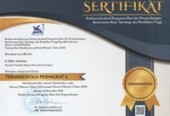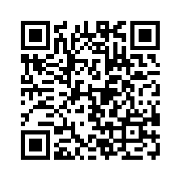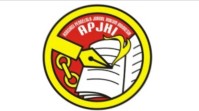Indonesia’s Traditional Knowledge Documentation in Intellectual Property Rights’ Perspective
DOI:
https://doi.org/10.28946/slrev.Vol2.Iss1.114.pp110-130Keywords:
Documentation, Intellectual property rights, Traditional knowledgeAbstract
Indonesia is a fertile place for traditional knowledge with more than 300 ethnical group inhabitants. Therefore, it is not surprising to know that Indonesia has the enormous potential of tradi-tional knowledge. However, Indonesia is still has some problems in legal framework to protect it. The research applies doctrinal research method. The problems that will be discussed in this article is what type of traditional knowledge documentation system that used in Indonesia and how it is performed in order to protect traditional knowledge. There are few goals from this research which are to find out about Indonesia's traditional knowledge documentation system and to compare it with other countries that also use documentation as the protection method. As a result, traditional knowledge documenta-tion system used in Indonesia is external registries which are done by parties outside the indigenous communities (Government, Academist, and NGO) and the information about traditional knowledge is placed in public domain. Even though it has not perfectly documented like India's Traditional Knowl-edge Digital Library, Indonesia has documented few of its traditional knowledge such as Songket pat-tern that belongs to South Sumatera. It could be summarized that traditional knowledge documenta-tion has a vital role as one of the most practical methods to perform traditional knowledge protection. In order to protect traditional knowledge, these documented activities need to be enhanced so it could give the financial benefit to indigenous communities as its owner.Downloads
References
Abbott, Ryan. 2014. “Documenting Traditional Medical Knowledgeâ€. World Intellectual Property Organization.
Adya Paramita P. 2008. “Sistem Registrasi Sebagai Alternatif Dalam Memberikan Perlindungan Atas Pengetahuan Tradisional (Studi Kasus Sengketa Pengetahuan Tradisional Antara Amerika Serikat dan Indiaâ€. Semarang: Magister Ilmu Hukum Universitas Diponegoro.
Anderson, Jane. 2010. “Indigenous/Traditional Knowledge & Intellectual Propertyâ€, Duke University School of Law, Durham, North Carolina: Duke University School of Law.
Aryanto, Heri. 2014. “Pemanfaatan Pengetahuan Tradisional Indonesia Berdasarkan Potensi Daerah Sebagai Modal Pembangunanâ€. Jurnal Hukum dan Pembangunan. 44 (2).
Asiska Riviyastuti. 2016. http://www.solopos.com/2016/03/08/umkm-solo-pemkot-solo-dorong-umkm-solo-urus-sertifikat-hak-cipta-698946 [retrieved: 5th September 2017].
Badan Penelitian dan Pengembangan HAM Kementerian Hukum dan HAM RI. 2013. Perlindungan Kekayaan Intelektual Atas Pengetahuan Tradisional dan Ekspresi Budaya Tradisional Masyarakat Adat. Bandung: P.T. Alumni.
Clark, Susanna E, Isabel Lapena, and Manuel Ruiz. 2004. “The Protection of Traditional Knowledge in Peru: A Comparative Perspectiveâ€. Washington University Global Studies Law Review. 3 (3).
Daulay, Zainul. 2011. Pengetahuan Tradisional: Konsep, Dasar Hukum, dan Praktiknya. Jakarta: Rajawali Pers.
Feris, Loretta. 2004. “Protecting Traditional Knowledge in Africa: Considering African Approachesâ€. African Human Rights Law Journal. 4 (2).
Garcia, Javier. 2007. “Fighting Biopiracy: The Legislative Protection of Traditional Knowledgeâ€. Berkeley La Raza Law Journal. 18 (2).
Gebru, Aman. K. 2015. “Intellectual Property Law and the Protection of Traditional Knowledge: From Cultural Conservation to Knowledge Codificationâ€. Asper Review of International Business and Trade Law. 15.
Gibson, Johanna. 2004. “Intellectual Property Systems, Traditional Knowledge and the Legal Authority of Communityâ€. E.L.P.R. 7 (26).
Hakim, Lukman. 2009. “Upaya Harmonisasi Hukum Terhadap Perlindungan Pengetahuan Tradisional (Traditional Knowledge) di Indonesiaâ€. Jurnal Yustika. 12 (2).
Hansen, David R. 2011. “Protection of Traditional Knowledge: Trade Barriers and the Public Domainâ€. Journal of the Copyright Society of the U.S.A. 58 (4)
Hansen, Stephen A and Justin W. V. 2003. A Handbook on Issues and Options for Traditional Knowledge Holders in Protecting their Intellectual Property and Maintaining Biological Diversity, Washington, DC: AAAS.
Hirwade, Mangala and Anil Hirwade. 2012. “Traditional Knowledge Protection: an Indian Prospectiveâ€. DESIDOC Journal of Library & Information Technology. 32 (3).
Jeongyoon, Choi. 2011. Report on International Conference on Utilization of the Traditional Knowledge Digital Library (TKDL) as a Model for Protection of Traditional Knowledge. New Delhi, India.
Korean Intellectual Property Office. 2011. Introduction of Korean Traditional Knowledge Portal. Seoul, Korea Selatan.
Lukman, 2015, Model Pengelolaan Sumber Daya Genetikdan Pengetahuan Tradisional di Indonesia, http://lipi.go.id/publikasi/model-pengelolaan-sumber-daya-genetik-dan-pengetahuan-tradisional-indonesia/14826 [retrieved: 2nd January 2018]
Mugabe, John. 2007. Intellectual Property Protection and Traditional Knowledge, Geneva: WIPO.
Myburgh, A.F. 2011. “Legal Developments in the Protection of Plant-Related Traditional Knowledge: An Intellectual Property Lawyer’s Perspective of the International and South African Legal Frameworkâ€, South African Journal of Botany. 77(4).
Nadkarni, Abha and Shardha Rajam. 2016. “Capitalising the Benefits of Traditional Knowledge Digital Library (TKDL) in Favour of Indigenous Communitiesâ€. Manupatra. 9 (1-2).
















